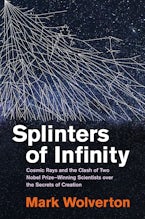This volume provides a guide to the discussion among biologists and philosophers about the role of concepts such as function and design in an evolutionary understanding of life.
Within the natural sciences, only biologists take seriously teleological statements about design, purpose, and adaptive function. Some biologists claim that to understand the complex morphological and behavioral traits of organisms we must say what they are for, which is to give a teleological explanation of why organisms have them. Others argue that the theory of natural selection, in providing statistical explanations for the same phenomena, obviates any need for teleological thinking. If teleology cannot be eliminated from biology, it raises fundamental questions about the nature of biological explanation and about the relationship of biology to the rest of science.To account for "Nature's purposes" is arguably the most important basic issue in the philosophy of biology. This volume provides a guide to the discussion among biologists and philosophers about the role of concepts such as function and design in an evolutionary understanding of life. All of the contributors examine biological teleology from a naturalistic perspective. Most of them maintain that teleological claims in biology both describe and explain something—but opinions vary as to exactly what is explained and how.
Contributors
Fred Adams, Colin Allen, Ron Amundson, Francisco J. Ayala, Mark Bedau, Marc Bekoff, John Bigelow, Walter J. Bock, Robert N. Brandon, Robert Cummins, Berent Enç, Carl Gans, Peter Godfrey-Smith, Stephen Jay Gould, Paul E. Griffiths, R. A. Hinde, Philip Kitcher, George V. Lauder, Ruth Garrett Millikan, S. D. Mitchell, Ernest Nagel, Karen Neander, Robert Pargetter, M. J. S. Rudwick, Gerd von Wahlert, Elisabeth S. Vrba, Larry Wright
Bradford Books imprint












